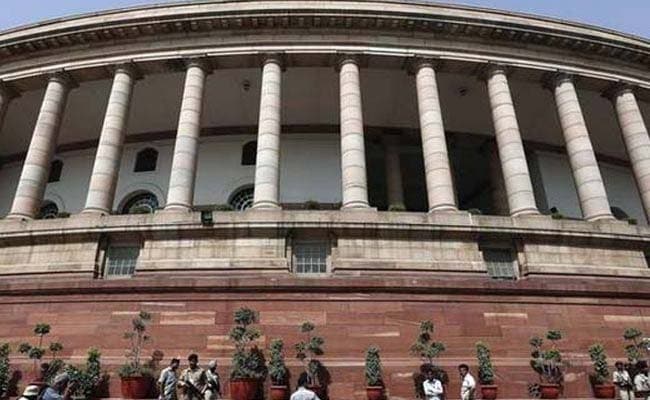
The opposition's demand is part of a strategy to corner the government on the Aadhaar Bill.
- In rare move, opposition asks for 2-day extension of Rajya Sabha session
- Opposition wants bills like Aadhaar & union budget to be debated
- Rajya Sabha scheduled for a 39-day recess from March 16
Did our AI summary help?
Let us know.
New Delhi:
In a rarest of rare move, a united opposition on Friday asked the government to extend the proceedings of the Rajya Sabha by two days so crucial bills like Aadhaar and the Union Budget could be debated.
The Upper House is scheduled to slip into a 39-day recess from March 16. The opposition's demand is part of a strategy to corner the government on the Aadhaar Bill, which the BJP-led government managed to pass as a money bill in the Lok Sabha where it has a big majority.
The opposition made this demand at the meeting of the business advisory committee or BAC which comprises of leaders of all parties. The intent is to ensure the Bill is debated.
The government turned the Aadhaar legislation into a money bill to checkmate the opposition's majority numbers in the Rajya Sabha. Once a money bill is passed by the Lok Sabha, the Upper House can only discuss it and not make amendments. Rules also stipulate that a money bill once officially received by the Rajya Sabha has to be discussed within 14 days - or it may be "deemed passed". The bill is likely to be "officially received" on Monday.
The opposition has questioned the clauses using which the bill was declared a money bill. It wants to discuss these contentious issues in the Rajya Sabha. And it knows there is little time.
The first half of the session has three sittings left. On Tuesday, most of the day will go in farewell speeches of retiring lawmakers. The Rajya Sabha has to conclude its debate on the Rail Budget and then take up the Union Budget. That is why the opposition wants few more sittings in the first half. The government is expected to revert on Monday.
The Aadhaar Bill 2016 seeks to give legal sanction to the unique identification number programme or Aadhaar as a single window to distribute subsidy and other direct benefit transfers.
The Upper House is scheduled to slip into a 39-day recess from March 16. The opposition's demand is part of a strategy to corner the government on the Aadhaar Bill, which the BJP-led government managed to pass as a money bill in the Lok Sabha where it has a big majority.
The opposition made this demand at the meeting of the business advisory committee or BAC which comprises of leaders of all parties. The intent is to ensure the Bill is debated.
The government turned the Aadhaar legislation into a money bill to checkmate the opposition's majority numbers in the Rajya Sabha. Once a money bill is passed by the Lok Sabha, the Upper House can only discuss it and not make amendments. Rules also stipulate that a money bill once officially received by the Rajya Sabha has to be discussed within 14 days - or it may be "deemed passed". The bill is likely to be "officially received" on Monday.
The opposition has questioned the clauses using which the bill was declared a money bill. It wants to discuss these contentious issues in the Rajya Sabha. And it knows there is little time.
The first half of the session has three sittings left. On Tuesday, most of the day will go in farewell speeches of retiring lawmakers. The Rajya Sabha has to conclude its debate on the Rail Budget and then take up the Union Budget. That is why the opposition wants few more sittings in the first half. The government is expected to revert on Monday.
The Aadhaar Bill 2016 seeks to give legal sanction to the unique identification number programme or Aadhaar as a single window to distribute subsidy and other direct benefit transfers.
Track Latest News Live on NDTV.com and get news updates from India and around the world

